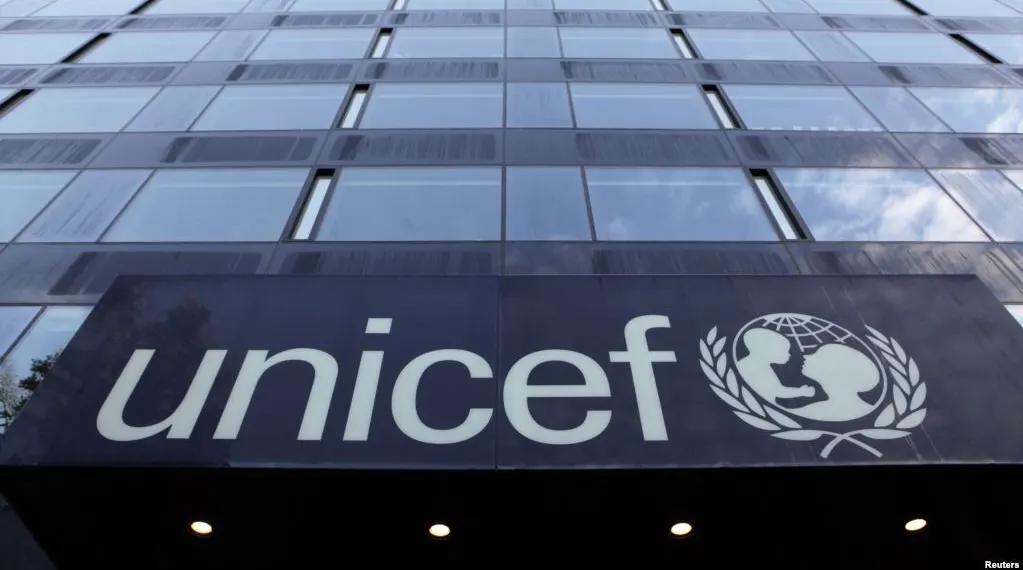Source: Ogalah Dunamis

The UNICEF building in Geneva. [Courtesy: voanewscom]
The United Nations Children’s Fund (UNICEF) has pledged ₦1.5 billion in counter-funding to combat the worsening malnutrition crisis in Sokoto State. The intervention comes as Severe Acute Malnutrition (SAM) reaches critical levels, according to findings from the latest Nutrition SMART survey.
This significant commitment was announced during a high-level visit to Governor Ahmed Aliyu by a joint delegation led by Nantewa Yilwatda, Nigeria’s Minister of Humanitarian Affairs and Poverty Alleviation. The delegation included representatives from UNICEF, the European Union (EU), Médecins Sans Frontières (MSF), and other humanitarian partners.
During the visit, Cristian Munduate, UNICEF’s Country Representative, acknowledged the state’s dedication and commended Sokoto’s allocation of ₦500 million towards the fight against malnutrition. She called for sustainable, locally driven strategies to ensure long-term impact, particularly for vulnerable children most affected by SAM.
Gautier Mignot, EU Ambassador to Nigeria and ECOWAS, also praised Sokoto’s leadership and reinforced the EU’s commitment to protecting vulnerable children. In his remarks, Minister Yilwatda linked malnutrition to insecurity, drawing from personal experience as a former Internally Displaced Person (IDP).
“There can be no food security without peace,” he said, urging Sokoto to harness its vast agricultural potential to combat hunger and improve nutrition security.
The delegation’s visit to the Sokoto State Specialist Hospital laid bare the devastating impact of malnutrition on children and the pressure it has placed on health workers. Stabilisation centres supported by UNICEF and MSF are overstretched, and health officials fear that the upcoming hunger season may push them beyond capacity.
A major concern is the shortage of Ready-to-Use Therapeutic Food (RUTF)—a lifesaving intervention for children suffering from SAM. Current supplies could be exhausted by September 2025, officials warned.
More than 30 containers of RUTF are reportedly stuck at Nigerian ports, held up by bureaucratic bottlenecks. This could severely impact the ability to respond to rising malnutrition rates.
In response, Minister Yilwatda instructed UNICEF and partners to present a detailed report on the challenges facing RUTF importation. She pledged to work with relevant federal agencies to fast-track clearance and remove delays:
“This is no time for bureaucracy. We must act fast to save lives,” she asserted.
The joint delegation called for:
Governor Aliyu expressed appreciation to UNICEF and all development partners, vowing sustained political will to defeat malnutrition in the state.